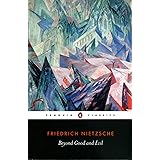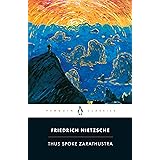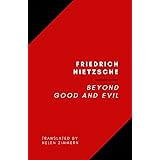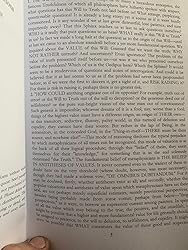
Enjoy fast, free delivery, exclusive deals, and award-winning movies & TV shows with Prime
Try Prime
and start saving today with fast, free delivery
Amazon Prime includes:
Fast, FREE Delivery is available to Prime members. To join, select "Try Amazon Prime and start saving today with Fast, FREE Delivery" below the Add to Cart button.
Amazon Prime members enjoy:- Cardmembers earn 5% Back at Amazon.com with a Prime Credit Card.
- Unlimited Free Two-Day Delivery
- Streaming of thousands of movies and TV shows with limited ads on Prime Video.
- A Kindle book to borrow for free each month - with no due dates
- Listen to over 2 million songs and hundreds of playlists
- Unlimited photo storage with anywhere access
Important: Your credit card will NOT be charged when you start your free trial or if you cancel during the trial period. If you're happy with Amazon Prime, do nothing. At the end of the free trial, your membership will automatically upgrade to a monthly membership.





Download the free Kindle app and start reading Kindle books instantly on your smartphone, tablet, or computer - no Kindle device required.
Read instantly on your browser with Kindle for Web.
Using your mobile phone camera - scan the code below and download the Kindle app.

OK
Beyond Good and Evil Paperback – November 6, 2018
Purchase options and add-ons
- Print length116 pages
- LanguageEnglish
- Publication dateNovember 6, 2018
- Dimensions6 x 0.27 x 9 inches
- ISBN-109781503250888
- ISBN-13978-1503250888
- Lexile measure1420L
"All the Little Raindrops: A Novel" by Mia Sheridan for $10.39
The chilling story of the abduction of two teenagers, their escape, and the dark secrets that, years later, bring them back to the scene of the crime. | Learn more
Frequently bought together

Similar items that may deliver to you quickly
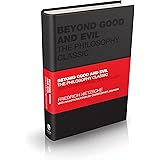 Beyond Good and Evil: The Philosophy Classic (Capstone Classics)Friedrich Wilhelm NietzscheHardcover
Beyond Good and Evil: The Philosophy Classic (Capstone Classics)Friedrich Wilhelm NietzscheHardcover
Editorial Reviews
About the Author
Product details
- ASIN : 1503250881
- Publisher : CreateSpace Independent Publishing Platform (November 6, 2018)
- Language : English
- Paperback : 116 pages
- ISBN-10 : 9781503250888
- ISBN-13 : 978-1503250888
- Lexile measure : 1420L
- Item Weight : 5.8 ounces
- Dimensions : 6 x 0.27 x 9 inches
- Best Sellers Rank: #28,787 in Books (See Top 100 in Books)
- #6 in Philosophy Criticism (Books)
- #7 in Epistemology Philosophy
- #22 in Individual Philosophers (Books)
- Customer Reviews:
About the author

Discover more of the author’s books, see similar authors, read author blogs and more
Customer reviews
Customer Reviews, including Product Star Ratings help customers to learn more about the product and decide whether it is the right product for them.
To calculate the overall star rating and percentage breakdown by star, we don’t use a simple average. Instead, our system considers things like how recent a review is and if the reviewer bought the item on Amazon. It also analyzed reviews to verify trustworthiness.
Learn more how customers reviews work on AmazonReviews with images
-
Top reviews
Top reviews from the United States
There was a problem filtering reviews right now. Please try again later.
In some ways, although I regard this as Nietzsche's best book because it is the clearest statement of his important subjects in the most concise manner, this book is frightening to read. I became a devotee of Nietzsche when I was a freshman in college, much like many other innocents who were attracted to his fulminations. It was, in retrospect, the wrong thing to do because one must understand such a great body of work that understanding cannot be accomplished by the novice.
For example, I knew nothing of the pre-Socratics, for the most part, outside a generic course on ancient philosophy until I began to read Greek much later. One can luxuriate with Plato and reason with Aristotle over a long period without understanding how the latter's advantages of reason creates a kind of golden calf which is intolerable for modern thinking, at least according to Nietzsche. he is especially hard on several writers, not the least of which was Spinoza, someone who is oddly not much studied any longer, but one with whom I identified for a long while, at least one year in school. Perhaps Nietzsche is only furious that Spinoza created a world that denied entry to someone like Nietzsche or, as Nietzsche would put it, Spinoza would never open the door of his world to the possibility that irrational things might enter and refuse to make any sense.
One can never take a writer out of his age, any more than one can take a composer or artist, and expect that he or she will make perfect sense or even imperfect sense. We are always understanding what we read or see against the underpinnings of both what we understand about the artist's world and what we understand about our own. The genius of Nietzsche was that he understood the origins and character of his own age, in my estimation, so well that he saw himself as a little more than a speck of dust in the world which was yet to come.
The greatest criticism one must lay at his feet is that if he was a prophet, then he was a prophet without a god or God. Though he may have accurately predicted how our modern world would come to see itself, puffed up, proud deniers of faith in things which failed to stand before the throne of understanding, perhaps Nietzsche had a significant failing which he shares with modern thought. Perhaps in understanding all too well that one has no reason to be called to faith in any given thing because one does not understand the source, he came to believe that faith before understanding is impossible. Then again, God knows we haven't done such a great job of saving ourselves.
Friedrich Wilhelm Nietzsche (1844-1900) had studied theology (which he didn't finish) and philology (the study of language in written historical scources); he became a professor of philology at the university of Basel in 1869, but had to resign in 1879 due to ill health. Nietzsche collapsed in 1889, causing him to become mentally ill, and needed to be cared for until his death in 1900. It has been thought that his collapse was caused by syphilis, but this diagnosis is no longer believed to be correct. The cause of his illness is not known.
In this work Nietzsche critises old philosophers and some of their views on 'free will', knowledge, truth, etc. He felt that the philosophers in the past had not been critical enough about morality, accepting the Chistian views on this theme without questioning those views. Nietzsche tells in this book what qualities philosophers should have, he believed philosophers should move on, into the area 'beyond good and evil'.
I recommend this book to anyone who is interested in modern philosophy, this book will make you think about some of your ideas about good and bad. You don't have to agree with him to gain new insight from this book. Nietzsche was a great writer, his works are written in a lively way. For Nietzsche rhetoric was more important than logic. As a sample of his way of writing I copy a few lines from this volume at the bottom of this review. This book was translated in the 19th century, so the language is a bit dated.
The work consists of 296 numbered sections and the poem "From High Mountains". The sections are organized into nine parts, the contents of this book:
PREFACE
BEYOND GOOD AND EVIL
CHAPTER I: PREJUDICES OF PHILOSOPHERS
CHAPTER II: THE FREE SPIRIT
CHAPTER III: THE RELIGIOUS MOOD
CHAPTER IV: APOPHTHEGMS AND INTERLUDES
CHAPTER V: THE NATURAL HISTORY OF MORALS
CHAPTER VI: WE SCHOLARS
CHAPTER VII: OUR VIRTUES
CHAPTER VIII: PEOPLES AND COUNTRIES
CHAPTER IX: WHAT IS NOBLE?
FROM THE HEIGHTS (POEM TRANSLATED BY L.A. MAGNUS)
From chapter 7, section 214 (page 70/location 1505):
214. OUR Virtues?--It is probable that we, too, have still our virtues,
although naturally they are not those sincere and massive virtues on
account of which we hold our grandfathers in esteem and also at a little
distance from us. We Europeans of the day after tomorrow, we firstlings
of the twentieth century--with all our dangerous curiosity, our
multifariousness and art of disguising, our mellow and seemingly
sweetened cruelty in sense and spirit--we shall presumably, IF we must
have virtues, have those only which have come to agreement with our most
secret and heartfelt inclinations, with our most ardent requirements:
well, then, let us look for them in our labyrinths!--where, as we know,
so many things lose themselves, so many things get quite lost! And is
there anything finer than to SEARCH for one's own virtues? [...]
Top reviews from other countries
Reviewed in Mexico on May 1, 2022

“Without the PATHOS OF DISTANCE, such as grows out of the incarnated difference of classes, out of the constant out-looking and down-looking of the ruling caste on subordinates and instruments, and out of their equally constant practice of obeying and commanding, of keeping down and keeping at a distance that other more mysterious pathos could never have arisen, the longing for an ever new widening of distance within the soul itself, the formation of ever higher, rarer, further, more extended, more comprehensive states, in short, just the elevation of the type man, the continued self-surmounting of man, to use a moral formula in a supermoral sense.
‘Noble’ to a 21st century ear sounds like superiority. The 'pathos of distance' is like you have with a pet dog to which you show approval or disapproval. Is Nietzsche saying that people need to be bred like dogs to serve the needs of their human masters???
Absolutely YES - because that is how we serve ourselves !!!
This is Nietzsches discovery. The sovereign individual, lord and master over itself. Over its caprices, impulses, lusts, fears. What kind of ruler are you of yourself and your own emotions? This shows itself in how you treat others under your command or those who are part of you - your children, your staff, your students, your soldiers etc etc All a direct reflection of your own personal philosophy which you create - it is not given to you.
So it has always been between aristocrats and their subjects. And the point is that so it is also between your commanding instincts and your mixed inner feelings which will often have to be dragged kicking and screaming to submit to your will if you are to accomplish anything of value. It is a neat idea in which the personal is externalised to become the political and the moral. Brilliant.
We all can be masters of our base instincts or we can be servants of them. It is up to us - but societies that discriminate in favour of the noble instincts over the base will clearly do much better than others - all pretty uncontroversial really - the chapter on being noble is a really good place to start with this book.




